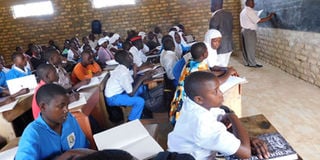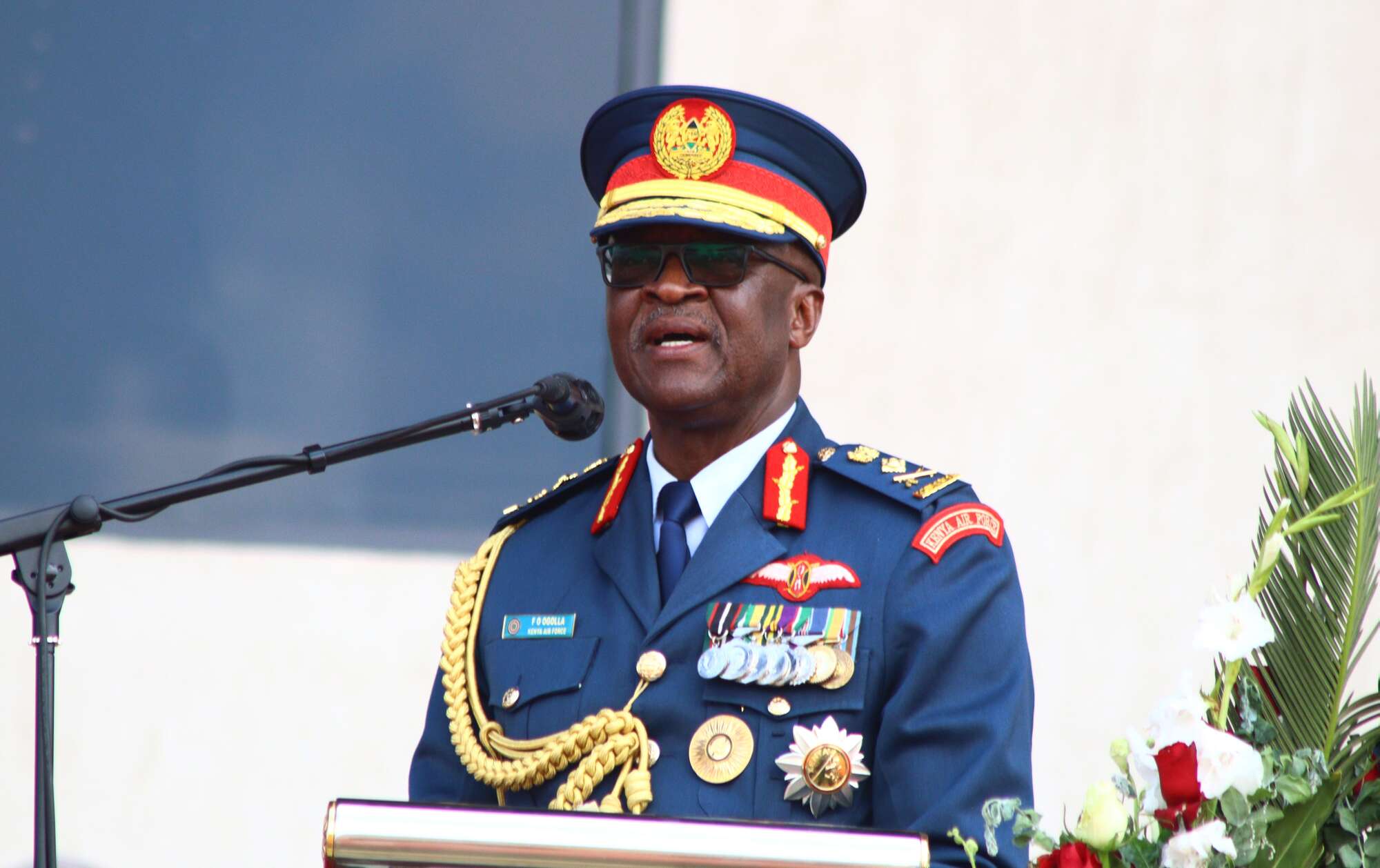mother tongues : Their role in formal education

What you need to know:
Prof Angelina Kioko of English and Linguistics at the United States International University, Nairobi Kenya opines that in countries where English is not the first language but remains dominant, many parents believe their children will get a head start in education by going ‘straight for English’ and bypassing their mother tongues
Before Ian Tumusiime (not real name) could utter his first words as a baby, his mother encouraged everyone who interacted with him to speak English to and with him.
At two years, the effort paid off when he started forming his first words in English. But Tumusiime was born a Mukiga, so why insist on English? His mother reasoned that it would be easy for him fit in at school when the time came.
Tumusiime is now six-years-old and he can speak English fluently, however, with each passing year, he finds speaking Rukiga difficult. It seems like a foreign language not to mention that he doesn’t understand the cultural significance. Now, contrary to what she thought when he was younger, his mother hopes that he will one day learn Rukiga.
‘Cosmopolitan’ learners
Prof Angelina Kioko of English and Linguistics at the United States International University, Nairobi Kenya opines that in countries where English is not the first language but remains dominant, many parents believe their children will get a head start in education by going ‘straight for English’ and bypassing their mother tongues.
Prof Kioko wrote this in an article on why schools should teach young learners in their mother tongues. Prof Kioko says that in Kenya and many other countries; the language of instruction is English, and some learners in urban and some cosmopolitan settings speak and understand some English by the time they join school, but most learners in the rural areas start school speaking their local languages only.

Apart from primary level, local languages have also been catered for at secondary level, most of which are optional to students. FILE PHOTO
“When they start school, children find themselves in a new environment. The classroom is new, most of the classmates are strangers, the centre of authority (the teacher) is a stranger too. The structured way of learning is also new. If, in addition to these things, there is an abrupt change in the language of interaction, then the situation can get complicated. Indeed, it can negatively affect a child’s progress. However, by using the learners’ mother tongue, schools can help children navigate the new environment and bridge their learning at school with the experience they bring from home,” Prof Kioko explains.
Similarly, according to Dr Gilbert Gumoshabe, the head of department of African Languages at the School of Languages, Literature and Communication at Makerere University, in some families due to cross cultural marriages, English is used as a medium of communication.
However, Dr Gumoshabe reasons that this should not be an excuse not to teach children their mother tongue.
“Whereas the existence of cross-cultural marriages cannot be ignored, parents need to teach their children their mother tongues. These languages are learnt more through social interaction,” he says.
However, he also notes that when we consider education, children are more at school than at home, therefore English is the language that dominates as a form of communication compared to the mother tongue.
Teaching local languages
Dr Gumoshabe says Uganda is advanced in teaching local languages from primary to university and it remains one of the most interesting areas that people want to study.
In 2007, the Ministry of Education rolled out the thematic curriculum for lower primary (P1-P3) with a local language policy emphasising the use of local language at lower primary as the first language of instruction (also referred to as the language commonly used in the area where the school is located). This is what is being applied in most primary schools across the country.
According to the National Curriculum Development Centre, teachers are expected to use a familiar area language as the medium of instruction. This may be local language for the learners whose first language is not English, English or any language that the learners are able to understand.
Christopher Isabirye, a lecturer at Kyambogo University says it was a good move to introduce local languages to school going children early enough.
“All educational theorists recommend that the best learning takes place with the mother tongue which starts at an early stage,” Isabirye says.
In addition, he says local languages need to be taught to preserve them for future generations.
“There are many books and scriptures written in the English language that are full of wisdom and knowledge, including local languages in the curriculum is the surest way to preserve them. Parents should make an effort to teach their children by regularly interacting with them in their mother tongue. Also, government should provide incentives such as scholarships for students with local language knowledge,” he explains.
The biggest drawback in teaching local languages at primary level that he cites is that it creates a problem where a child may not understand the language.
Apart from primary level, local languages have also been catered for at secondary level, most of which are optional to students. Dr Gumoshabe identifies some of the local languages being studied at secondary level. He mentions that these include: Runyankore/Rukiga, Runyoro/Rutooro, Lusoga, Ateso, Dophadola, LebLango, Acholi, Lugbarati, Kiswahili, and Luganda.
He says all of these are examinable at both O and A-Level and the number of students doing these subjects has increased to thousands at both levels. He singles out Runyankore/Rukiga and Luganda as being the most appreciated by students.

By using the learners’ mother tongue, schools can help children navigate the new environment and bridge their learning at school with the experience they bring from home.
FILE PHOTO
Tertiary institutions
In Primary Teachers Colleges (PTCs), no local language is taught. Only the principles of the languages are taught.
Joshua Muhindo, the Principal at Mukujju Core PTC in Tororo district explains why.
“We normally teach the principles of local languages because we have a multilingual society but the principles of learning a language remain the same worldwide. It is our approach of teaching local languages in terms of principles so that teachers can later apply the same to their individual local languages when they go to the field to teach,” Muhindo explains.
According to John Natukunda, a tutor at St George PTC in Ibanda District, Principles of Local language is studied as a compulsory course unit in the first year and made an elective in the second year.
Natukunda says tutors handle different languages depending on the region. For instance, PTCs in western Uganda study the orthography of Runyakitara (Runyankore/ Rukiga, Runyoro/Rutooro) while for PTCs in northern Uganda study Luo.
“If students want to master that particular language, they can pursue it at university,” he notes.
However, the course unit is taught and examined in English. Fr James Nuwagaba, the Principal at St. George PTC says it’s a drawback for the course unit to be examined in English.
He notes that it is not a Ugandan matter but a worldwide principle that learners learn better at an early stage if they use a language that they commonly use in that area. He cites African countries where the local language policy is a local language such as Nigeria, Ghana, South Africa, Zambia, Malawi, Lesotho, Swaziland and Zimbabwe.
At university, enrollment to study local languages is increasing. For example, at Makerere University, Gumoshabe says many students are studying Luganda since it is now a language of instruction. Runyakitara (comprising of Runyankore/Rukiga, Runyoro/Rutooro) is also expected to have a rise in demand because it is expected to be offered soon as a teaching subject in the next academic year.
He notes that Kiswahili also has increasing numbers of learners. Unfortunately, Luo which is also taught still has few classes.
Opportunities
Dr Gumoshabe says the media industry presents an array of opportunities for students of local languages such as editing local language publications and broadcasting on radio and television.
“Many media houses especially television and radio stations are being established. These are huge opportunities for students who study local languages,” he remarks. Another huge opportunity Gumoshabe cites is in teaching of these local languages from primary, secondary and tertiary institutions.
He says we also need interpreters for local languages in courts of law, and by large, most of the literature Ugandans consume is written in English and this may also require interpretation and translation into local languages.
Setbacks
Muhindo says the thematic curriculum is faced with a challenge of teachers who have to serve the whole country. For instance, he says he hails from Kasese but that doesn’t stop him from being transferred to Tororo to teach as a primary school teacher which creates a problem. If by nature, he likes teaching lower primary, then it’s possible that language may be a hindrance to him.
He also notes that some areas do not have materials that are in local languages. For instance, he says despite the ministry rolling out Early Grade Reading in primary schools, not all have benefited from those interventions with some lacking materials. He says there’s a misconception by parents and communities where we think English means education yet, the Chinese and other most developed countries are well-developed yet they use their languages.
“In Uganda, we think, being able to speak English translates into being educated. English is just a language like any other.




